Message from the Principal
Principal David Smith

Message from the Principal
Principal David Smith
I am really glad to be back in Tamworth and Australia. Travelling is enjoyable but there is no place like home. Whilst I enjoyed my time visiting schools in England, attending conferences, doing educational reading and taking a course, I am delighted to be back at Calrossy. My time away has helped highlight many positive aspects of our school. Last week I attended assemblies at all levels, which was wonderful and reinforced the strength of our community. The Junior School students in particular were incredibly welcoming, even going as far as reminding me that my hair has grown back. It was a great joy to attend each gathering.
I look forward to sharing my learnings with the school community over coming weeks and months. The schools I visited were out of London, focussed on Boarding and mostly K – 12.
Whilst away it became very evident that the Australian educational experience over the last few years is similar to that across the world and the impact has been equally disruptive. Schools everywhere are working hard to re-establish resilience, a sense of belonging and academic excellence. Some year groups were more affected than others.
Whilst away I encountered some writing by Doug Lemov on education and schooling post COVID. He is a former teacher and University academic who wrote Teach Like a Champion (2010), a collection of strategies to help busy teachers improve classroom management and inspire engagement in schools across the world.
Lemov has recently published (with others) – “Reconnect: Building School Culture for Meaning, Purpose and Belonging” (2022)(1. Reported by Edutopia.com) He discusses the challenges of creating strong school cultures. He suggests that issues linked to the pandemic actually precede it, and probably arise, at least partly, from the detrimental effects of smartphones and social media use on mental health, trust in institutions like government and school, and our sense of social connectedness. The changes have materialized gradually but may be permanent, Lemov says, and schools must prioritize “reconnecting” with students in the post-pandemic era through intentional strategies that “rewire” environments in ways that make students feel both cared for and challenged to succeed academically. “We can’t turn back the clock,” Lemov writes, but what we can do is “plan and design our schools and classrooms differently going forward—not just for a year or two of ‘recovery’ but perhaps more permanently.” (This is something on which I reflected whilst away on leave.)
He suggests that since the return after COVID, students appear to have shorter attention spans, they struggle in social interactions with peers, they have more behavioural issues, and they struggle to persist with tasks. I found this a similar observation in England.
Interestingly Lemov believes that as well as distracting, phones are vehicles of social isolation and social disconnection. One student he interviewed for the book said that after the pandemic, she walked down a hallway expecting hugs and squeals of delight, but instead kids were on their phones and barely looking up at her. It made her think: “Why am I even here? I should just be on my computer zooming from my bedroom.”
Lemov says that one of the most important things in healthy school culture is a sense of belonging, something I observed in the good schools I visited in England. He describes belonging as a flame that needs to be constantly fed by small signals of trust and connection.
Lemov suggests that a foundational question to ask about a school is: “Are people talking to each other, or past each other?” He proposes that we teach students what he
terms as habits of discussion, which are tools that help students connect their ideas to others; They serve academic goals but also convey that what their peers are saying is important. We also talk about habits of attention, which are just as important. Those are the things students do when they’re not the active participant in class. We should teach students to do things like sit up when people are speaking, make eye contact with speakers, nod, and use other facial expressions that convey they’re listening and care.
If we’re going to ask students to share things that matter, we can’t have them talking to the back of someone’s head, or to someone checking their phone.
Lemov also has helpful things to say about social and emotional learning, behaviour and discipline. If we want to build a great school culture, we can’t just tell people what not to do. We have to create a vision of what we want them to do, and how we want them to connect to each other and build each other up.
Resilience and stress were also mentioned. He claims too often we tell kids how fragile they are. When removing stress from students’ lives we underestimate how some stress draws people together. In sport, players rely on each other more which optimizes their performance but in the classroom, we treat all stress like it is damaging. If we teach students resilience and that stressful experiences can make you stronger and better, it can be an incredibly productive mindset intervention.
Finally he suggests that virtues like gratitude and resilience are cognitively beneficial to students—even those that have been through hard times. Lemov reminds that we need to teach students to believe in their own capacity to solve problems. I think young people are strong and if we help them get back to normalcy, they will get back to normalcy.
Lemov’s writing resonated with me, especially in considering what I saw in England and it reinforces some of the thinking behind how we might best support and grow students at Calrossy. These things apply to children of all ages.
It is my goal that we foster a home-grown culture that promotes meaning, purpose, and belonging, emphasising these things to promote ‘Excellence in a Christian environment’ and to develop graduates who are creators of hope and change that matters. Partnership with parents in this process is valued.
“Whatever is true, whatever is noble, whatever is right, whatever is pure, whatever is lovely, whatever is admirable--if anything is excellent or praiseworthy--think about such things. Whatever you have learned or received or heard from me, or seen in me--put it into practice.” Philippians 4:18
Special Delight
One of the lovely parts of my England trip were to visit two of the three Calrossy Year 13s who are undertaking GAP Years. 2022 School Captain Emma Golland is working in Cottesmore School and Avril Gardiner is at Maidwell Hall, both in roles as House Mums to Prep (Primary) School boarding students. What was most delightful was meeting them and learning about what a wonderful job each is doing in their schools as important members of the respective staff teams. Each of our young women were a credit to Calrossy and wonderful ambassadors for Australian independent schools.
Thanks
Many thanks to Mr Mark Doran who acted as Principal whilst I was on leave and also to Mrs Dianne Cameron who so capably filled in as Deputy Principal.
Congratulations
I was thrilled to learn last week that our Calrossy Equestrian Team had achieved the Most Successful School Award for the 10th successive time at the recent North West Equestrian Expo. This event is a complex one and what delighted me as much as the overall result was the participation of our whole team and the feedback from others outside the school on how well our students represented Calrossy, showing great teamwork and sportsmanship in their approach to a demanding four days of intense competition. Special congratulations to our team, the staff support and to parents who supported this outstanding all-round performance.
Congratulations also to the various Junior School and Senior Dance groups who recently competed so well in the Tamworth Eisteddfod and to our Year 10 Science and Engineering Challenge Team, who recently won the Regional final and will now compete in the State Final next month.
Special mention to the Calrossy Sheep team for excellent recent results, including ribbons at the Guyra Sheep Show
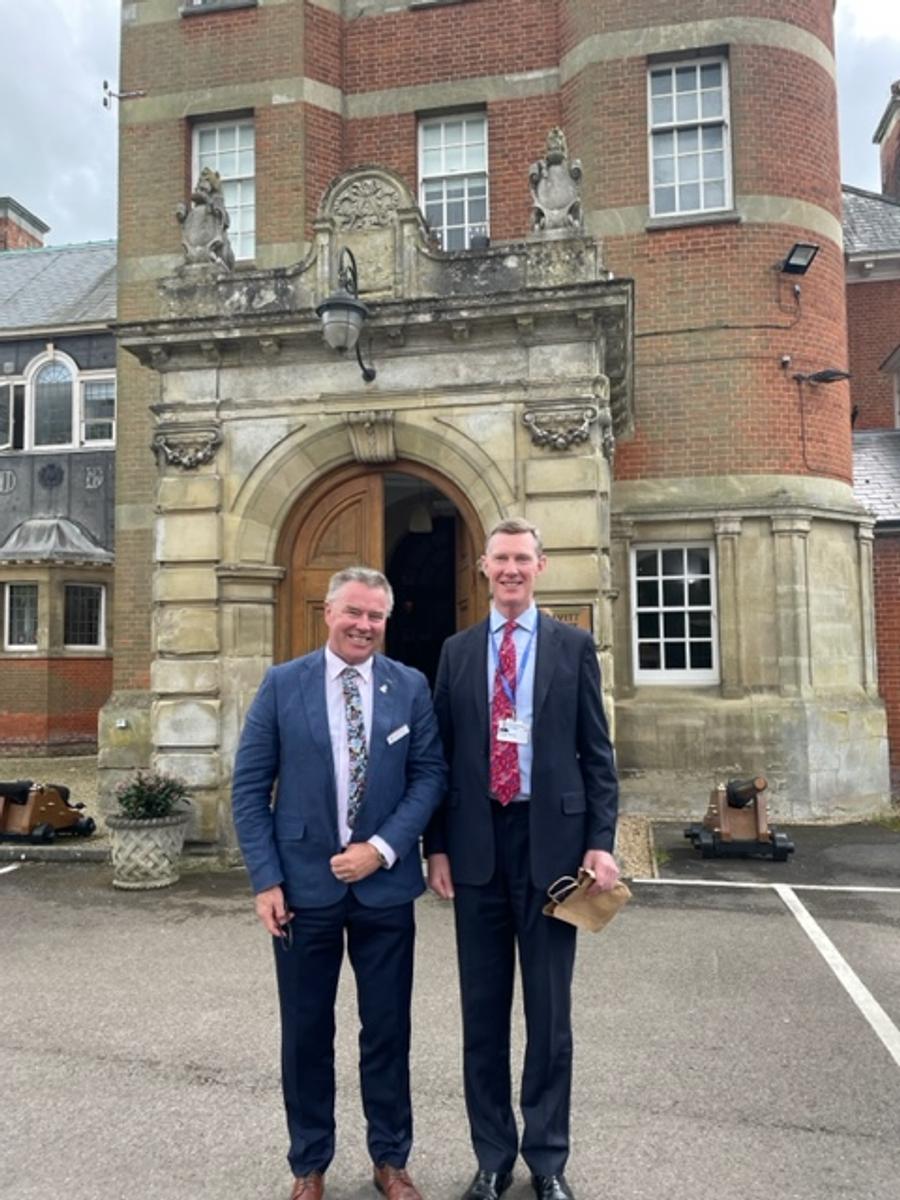
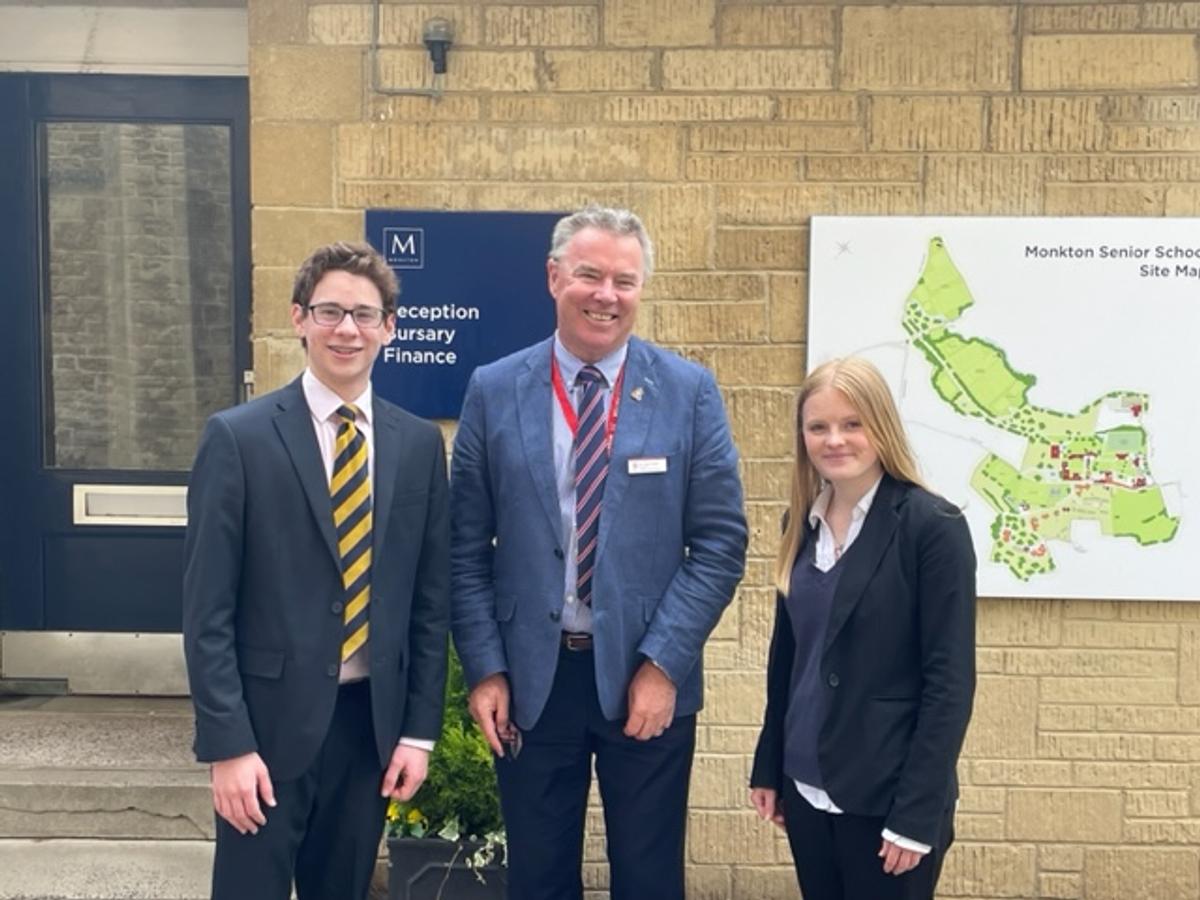
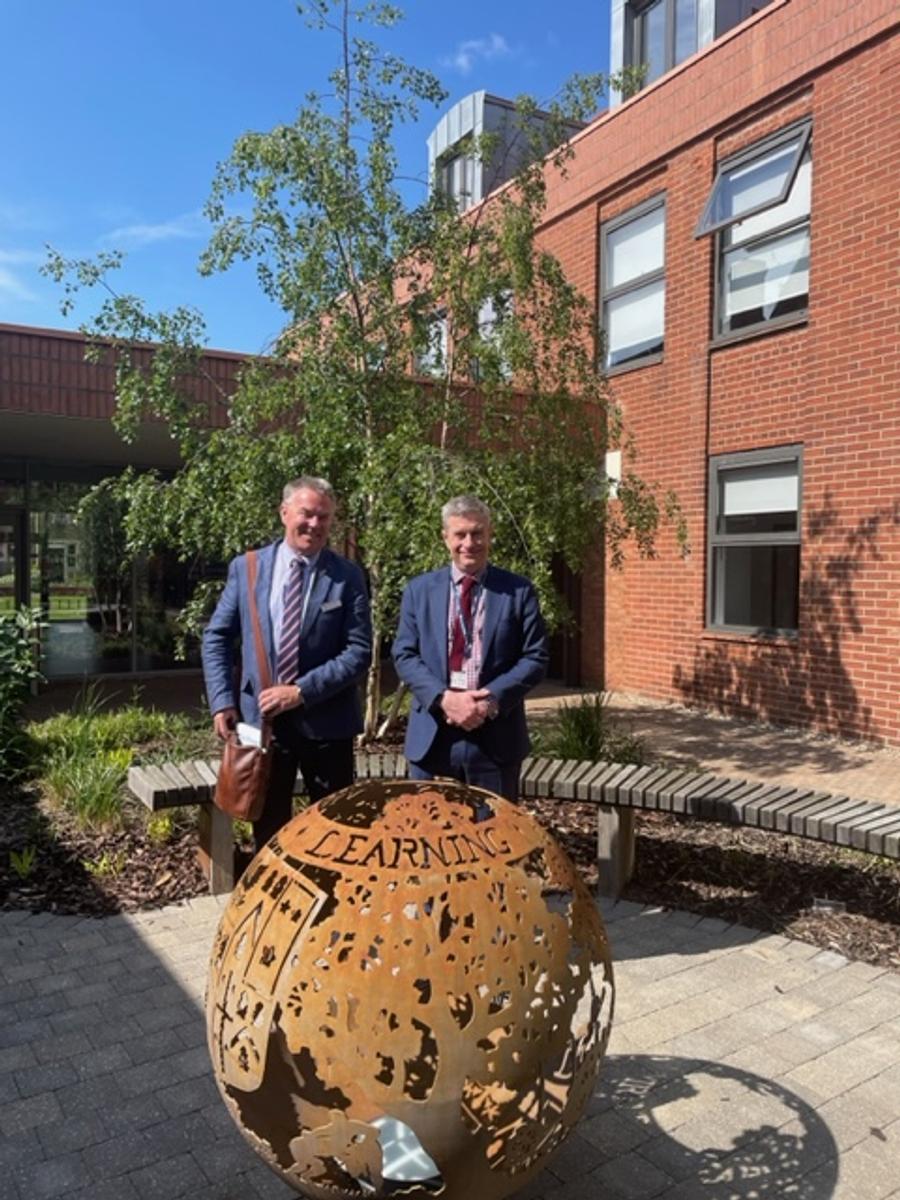



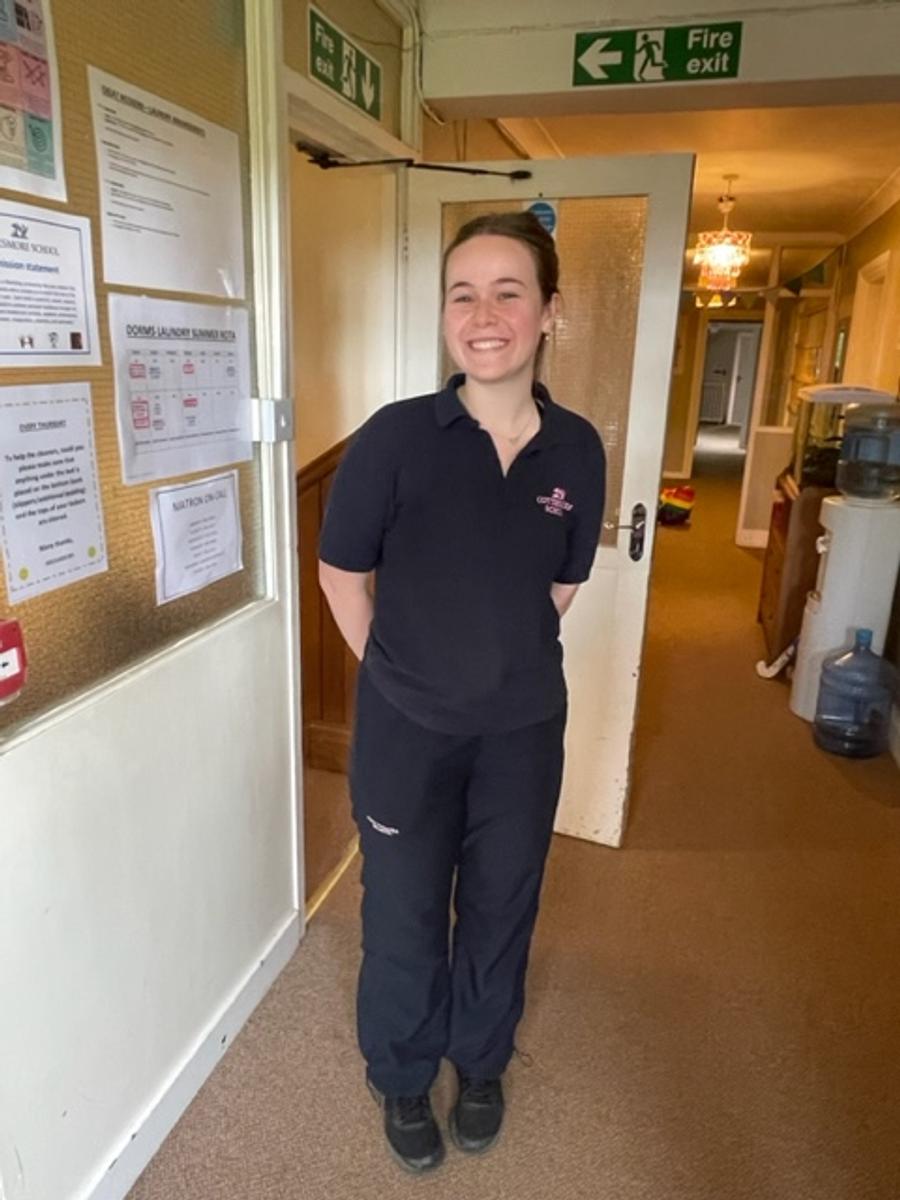
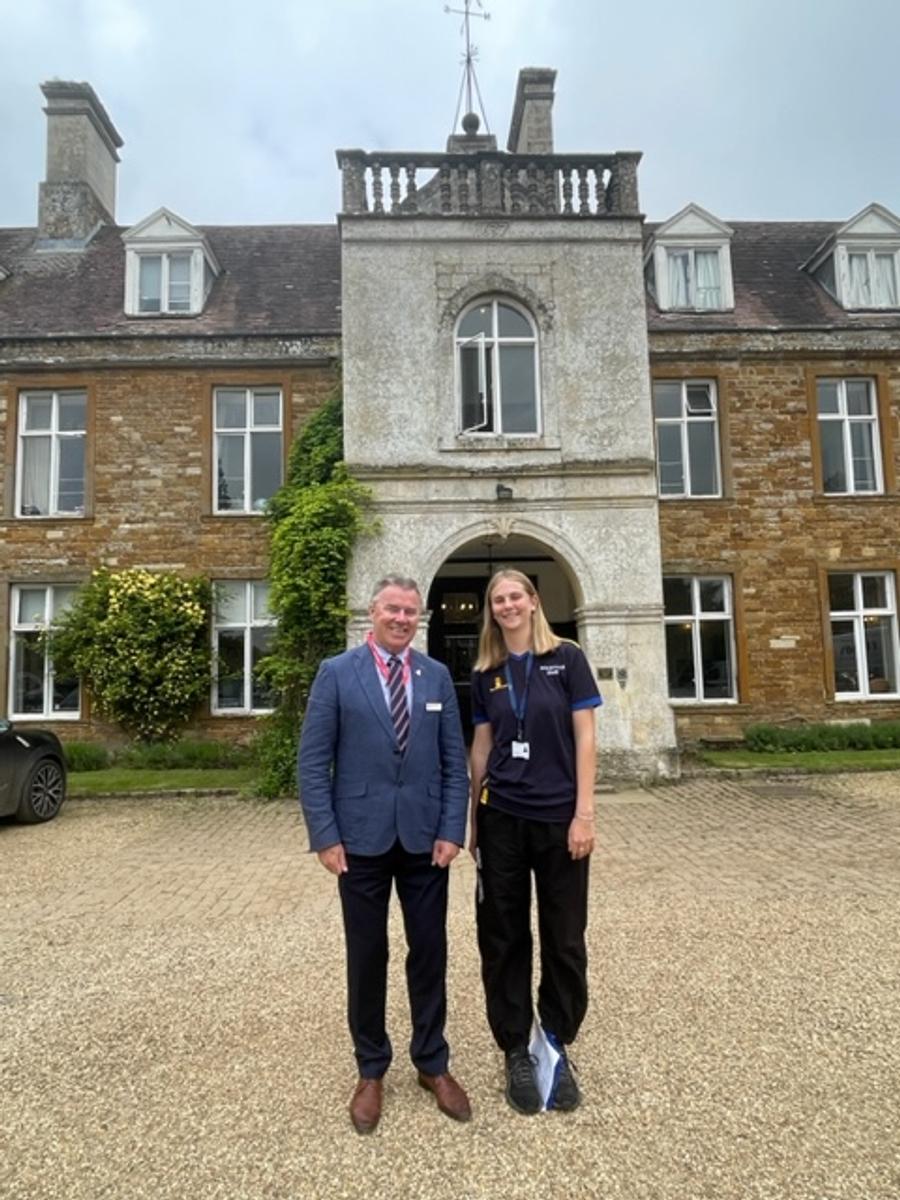
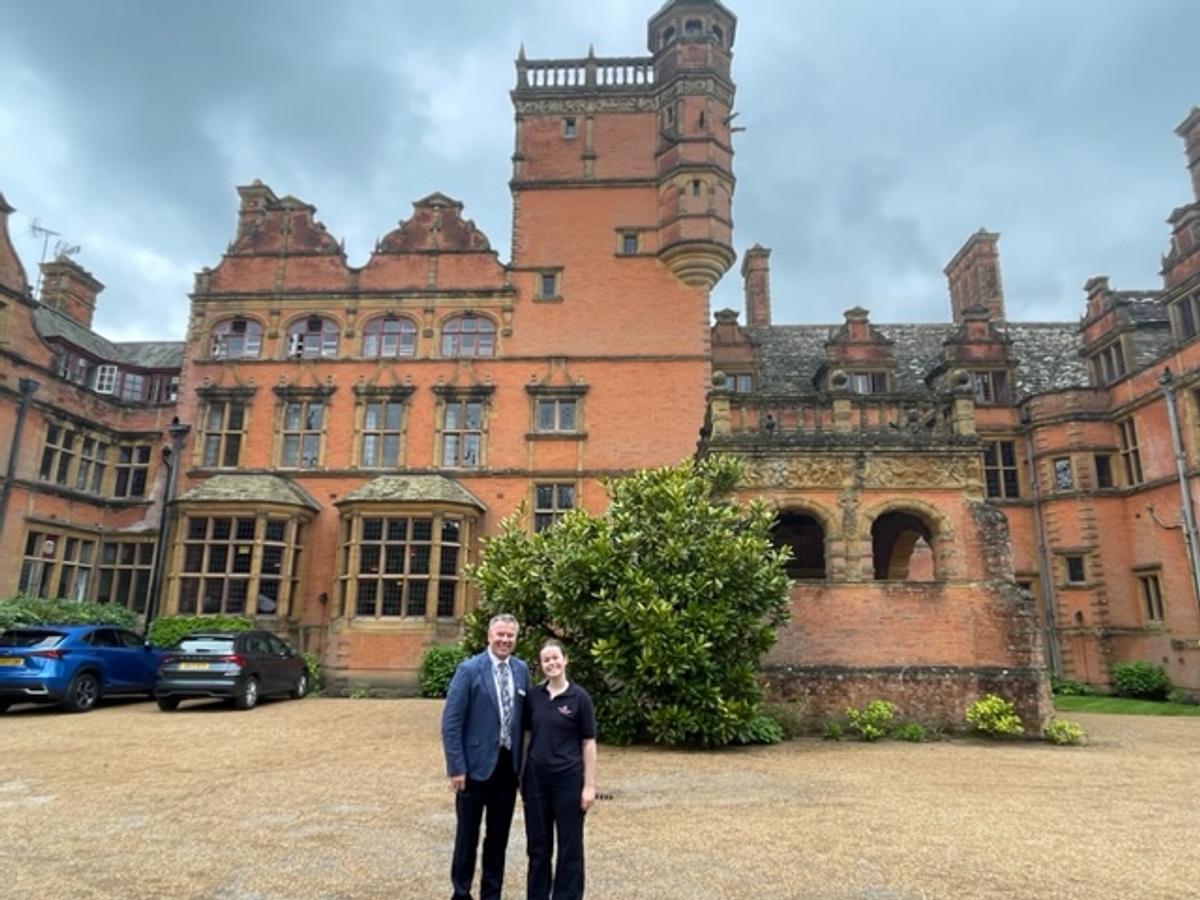



Special Delight
One of the lovely parts of my England trip were to visit two of the three Calrossy Year 13s who are undertaking GAP Years. 2022 School Captain Emma Golland is working in Cottesmore School and Avril Gardiner is at Maidwell Hall, both in roles as House Mums to Prep (Primary) School boarding students. What was most delightful was meeting them and learning about what a wonderful job each is doing in their schools as important members of the respective staff teams. Each of our young women were a credit to Calrossy and wonderful ambassadors for Australian independent schools.
Thanks
Many thanks to Mr Mark Doran who acted as Principal whilst I was on leave and also to Mrs Dianne Cameron who so capably filled in as Deputy Principal.
Congratulations
I was thrilled to learn last week that our Calrossy Equestrian Team had achieved the Most Successful School Award for the 10th successive time at the recent North West Equestrian Expo. This event is a complex one and what delighted me as much as the overall result was the participation of our whole team and the feedback from others outside the school on how well our students represented Calrossy, showing great teamwork and sportsmanship in their approach to a demanding four days of intense competition. Special congratulations to our team, the staff support and to parents who supported this outstanding all-round performance. More details on this event can be found in the Extra-curricular section of this newsletter.
Congratulations to the various Junior School and Senior Dance groups who recently competed so well in the Tamworth Eisteddfod and to our Year 10 Science and Engineering Challenge Team, who won the Regional final and will now compete in the State Final next month.
David Smith
Principal